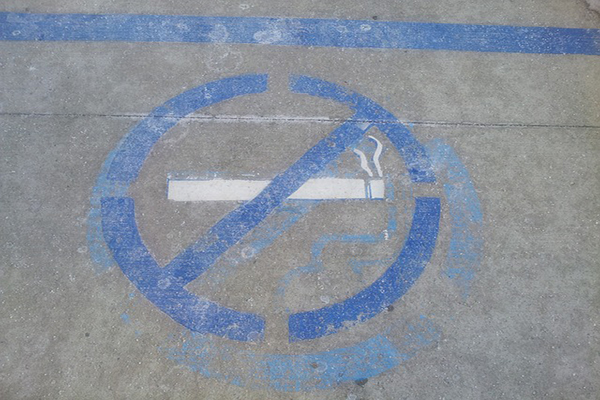In late January, the New Orleans City Council approved a sweeping ban on smoking in the city, outlawing all cigarette and e-cigarette use in all privately owned bars and clubs, public recreational areas, sports arenas, and movie theaters.
The ban also extends to any business establishment within the city, as well as outdoor areas like those found in some apartment building complexes, or “outdoor service lines” like those found at a bank.
“There is indisputable evidence that implementing 100 percent smoke-free environments only effective way to protect the population from the harmful effects of exposure to secondhand smoke,” the city councilmembers write in the new ordinance.
The ordinance’s language also specifically cracks down on e-cigarette usage in the Big Easy, citing the risk of an “aerosol or vapor of undetermined and potentially harmful substances, which may appear similar to the smoke emitted by traditional tobacco products.”
Thinking Outside of the Box
However, according to Bridgewater State University Professor of Philosophy Aeon Skoble, these ethical arguments for government bans are mostly hot air. Instead of prioritizing one group’s rights over another group’s rights, Skoble says governments should consider the issue from a new angle.
“Thinking about an entirely different right—property rights—would go a long way toward solving the problem. If it’s my property, I have the right to set the use rules, I can allow or ban smoking as I prefer, and neither the smoker nor the non-smoker really has a legitimate complaint,” he said.
“If, for example it’s my house and I don’t allow smoking, a smoker can’t really object ‘but I have a right to smoke.’ His personal autonomy, his legitimate right to use his own body as he sees fit, is bounded by the fact that he’s in my house,” Skoble said. “His right to smoke is operational on his own property or on anyone else’s who allows it. By the same token, if I changed my house rules to allow smoking, the non-smoker cannot really complain… if you want smoke-free air, don’t come visit me.”
‘No One-Size-Fits-All Solution’
Skoble said smoking bans enacted on public property, such as government buildings, are different from bans on smoking in bars or restaurants.
“We call restaurant patios ‘public places,’ but they are in fact privately owned. The restaurant owner ought to be accorded maximum latitude in setting use rules, banning or allowing smoking as he or she sees fit,” he said. “Depending on their clientele, they might want to do it one way or the other, and there’s no one-size-fits-all solution.”
Skoble questioned the goals of sweeping smoking bans, such as New Orleans’ new law.
“Are we banning smoking because smoking is bad for you and the government should ban things that are bad for you, or because others are harmed by you smoking? This matters, because the former is unjustified paternalism.
“Based on that rationale, we’d have to ban, alcohol, extreme sports, and fried foods,” he said.
Dotty Young ([email protected]) writes from Ashland, Ohio.
Internet Info:
“Banning Smoking Outdoors is Seldom Ethically Justifiable,” Simon Chapman, Tobacco Control, http://heartland.org/policy-documents/banning-smoking-outdoors-seldom-ethically-justifiable/




